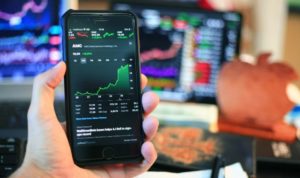The Way Social Media Affects the Forex Industry
Are there any links between the Forex market and the world of online social networking? The world’s biggest financial market is influenced by social media, although it may seem odd.
The most popular internet resources are social media platforms. As a result, they have an impact on almost every facet of daily life.
The appeal of social media has permeated significant businesses in the world’s most powerful countries during the last several years. Foreign currency trading, in particular, makes extensive use of this strategy. Forex trading isn’t the first thing that springs to mind when you think about social media. Social media has indeed permeated almost every aspect of our lives, and trading is no exception.
How Does Social Media Influence On FX Trading?
Market knowledge is critical in order to trade successfully. If you’re on social media, you’ll be the first to know about major events as soon as they happen. Traders may adjust their trading selections and strategies based on a tweet or a Facebook post about big market events in a matter of seconds. At any given moment, the news might assist you to determine how to trade currencies.
It’s easier than ever to interact with others thanks to social media. There are a slew of social media sites where currency traders may get together to discuss and analyze market trends and their ramifications. Investors, as shown here, may share helpful sources and learn a lot from these platforms about what works and what doesn’t. Social media has a significant impact on the growth of the Forex market since it helps to expose more individuals to Forex trading.

In the form of articles and reviews, certain specialists on social networking networks supply trustworthy material. It’s no secret that LinkedIn is a haven for Forex-obsessed businesses, professionals, and organizations. To improve their Forex trading abilities, traders may make use of the free advices and opinions of industry experts found on LinkedIn.
In addition to that, traders can find certain brokers, get to know how to trade on cTrader with Axiory, what are the common strategies and tools that are used in FX trading to avoid big losses and reach success. Marketing has been transformed thanks to the internet. Although the currency exchange market has a plethora of unstructured data, this data has a significant impact on market movement. Some traders use this data to make better investing decisions by intelligently filtering part of it and trying to forecast market moves.
However, traders should only use social media to learn about the market. Other, more dependable tools and resources exist for analyzing the Forex market.
Similar to other financial markets, trading volumes may have an impact on currency values, which in turn affects the Forex market’s direction.
The price of a given currency might fall if a significant number of Forex traders make their deals at the same moment, such as selling a currency. When the price of a major currency drops significantly in a currency market, more traders take action on their currency positions. In the Forex market, this might have a huge impact.
In most cases, the traders who start a market movement want to profit more than other participants.
Forex Scams And Social Media
We’ve seen several frauds take advantage of unsuspecting investors hoping to benefit handsomely from FX trading. Scammers haven’t invented these schemes, but due to social media, getting their victims has never been simpler. A brief “DM” or WhatsApp message to the account’s owner would make you a millionaire, according to a slew of profiles on Instagram, Facebook, and LinkedIn.

Over the years, there have been several varieties of forex scams; the three most prevalent now are as follows:
Trading programs that employ algorithms, or lines of computer code, as signals to initiate and cancel transactions are known as Forex robot scams. Forex algo robots are not all frauds. In contrast, fraudsters claim that their technology can produce trades automatically while you sleep, earning you enormous cash.
Individuals that send out trading ideas, which generally include a currency pair, a direction, an entry price and stop loss, and target levels are known as Forex signal sellers. Many signal-seller scam artists accept funds from a small number of traders and then disappear. To keep the signal money going, some people will propose solid trades from time to time. While some signal dealers are trustworthy, it’s always a good idea to keep an eye out for those not.
There are a lot of ads nowadays marketing phony forex trading investment scams and fraudulent forex investment funds. FX trading investment scams force you into a pyramid scheme or multi-level marketing fraud. Your primary goal now is to bring in new users to the platform/company because of the referral commissions you get for each one that signs up.
Traders who claim to have earned their fortunes via forex trading are more than likely exaggerating. As a result, they are legally required to inform their followers of the dangers of losing money related to their “signals,” “mentoring,” or commissions from each signup or trade made, yet they don’t do so.
Author Profile
- Blogger by Passion | Contributor to many Business Blogs in the United Kingdom | Fascinated to Write Blogs in Business & Startup Niches |
Latest entries
 BusinessMarch 26, 2025eCommerce Strategies to Reduce Returns You Can Leverage Today
BusinessMarch 26, 2025eCommerce Strategies to Reduce Returns You Can Leverage Today BusinessMarch 11, 2025The Future of Pharmaceutical Packaging
BusinessMarch 11, 2025The Future of Pharmaceutical Packaging BusinessFebruary 28, 2025SaaS Client Onboarding Challenges and How to Tackle Them?
BusinessFebruary 28, 2025SaaS Client Onboarding Challenges and How to Tackle Them? BusinessFebruary 28, 2025Interim Finance Managers: Why Hiring Them for your Business?
BusinessFebruary 28, 2025Interim Finance Managers: Why Hiring Them for your Business?

